On the first day of their invasion of the Soviet Union on 22 June 1941, the Germans bombed Liepāja. With the offensive, many residents of the city, including Jews, were conscripted to the Red Army, and others were sent to their places of work, public services and factory labor. The men were forbidden from leaving the city. During the following week, the city became a battlefield. Dozens of Jews were among the combat victims. On 29 June 1941, the Germans occupied Liepāja and began carrying out political arrests and murders with the collaboration of the Latvian "Self-Defense" organization. Some of the killings took place in the Liepāja Park, adjacent to defense ditches originally dug by the Soviets. Among the victims were dozens of Jewish men.
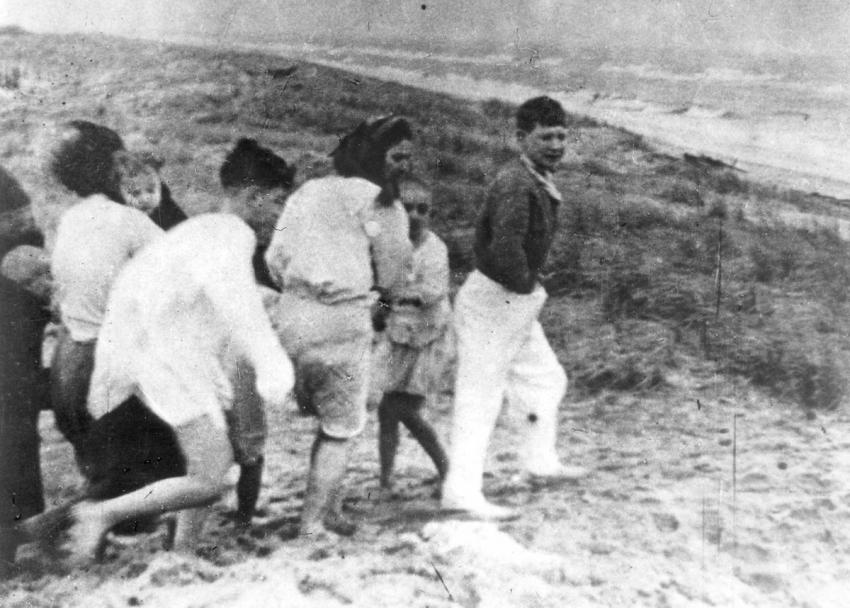
The 2,750 victims were apprehended in Liepāja; after a selection process they were brought to Šķēde, where they were marched to ditches dug in the sand. They were ordered to undress, and shot by German SS and Latvian units.
David Zivcon, a Jewish electrician working for the SD in Liepāja, was carrying out repairs in the house of SS Commander Karl Strott, when he discovered photo negatives documenting the murder of the Jews of Liepāja. In secret he took the negatives, made copies of them, and then returned the originals. Zivcon was saved by hiding in the home of Righteous Among the Nations Robert Seduls and his wife Johanna. The photographs were used as evidence during the Nuremberg trials.
Yad Vashem Photo Archives 4613/625

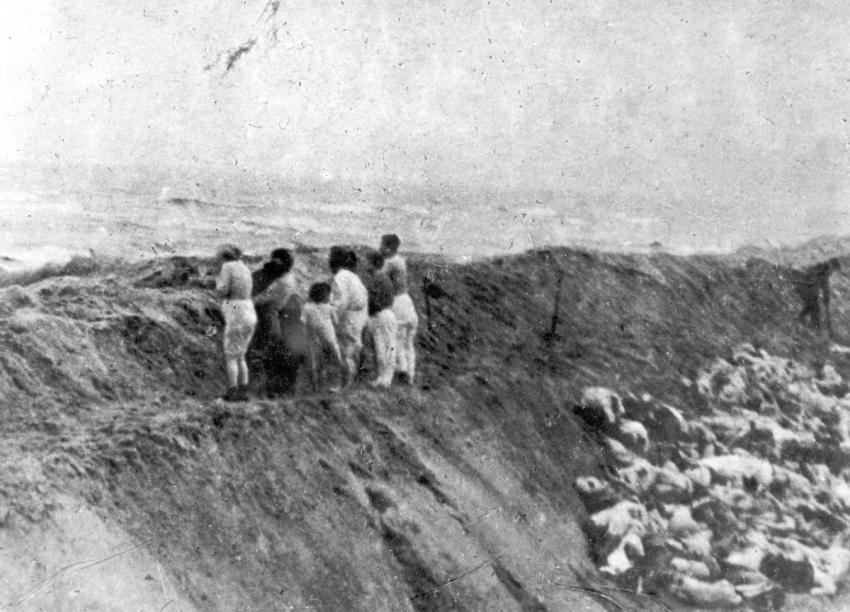
Yad Vashem Photo Archives 4613/629

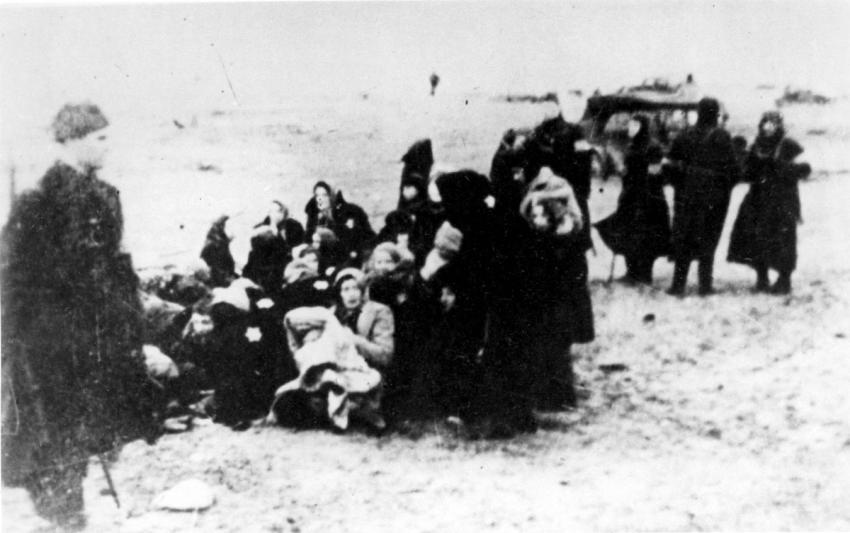
Yad Vashem Photo Archives 2725/6

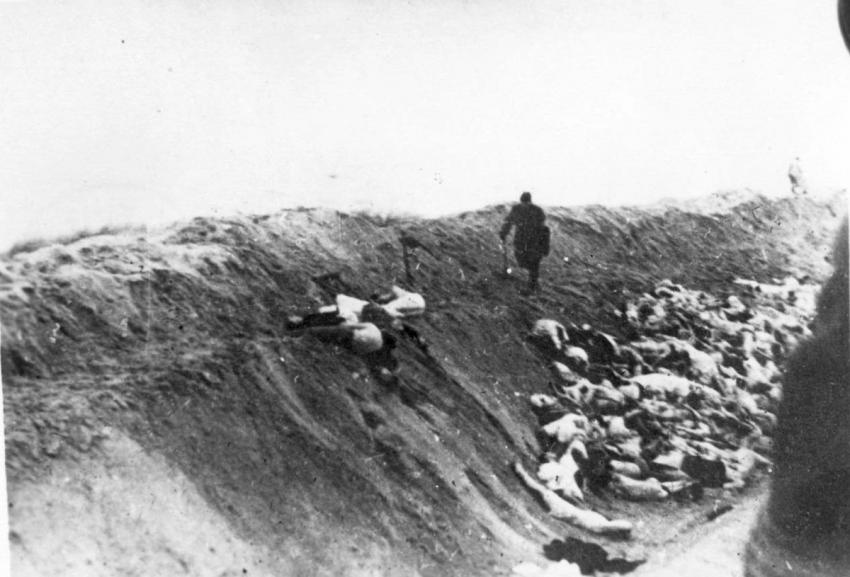
Yad Vashem Photo Archives 85EO6

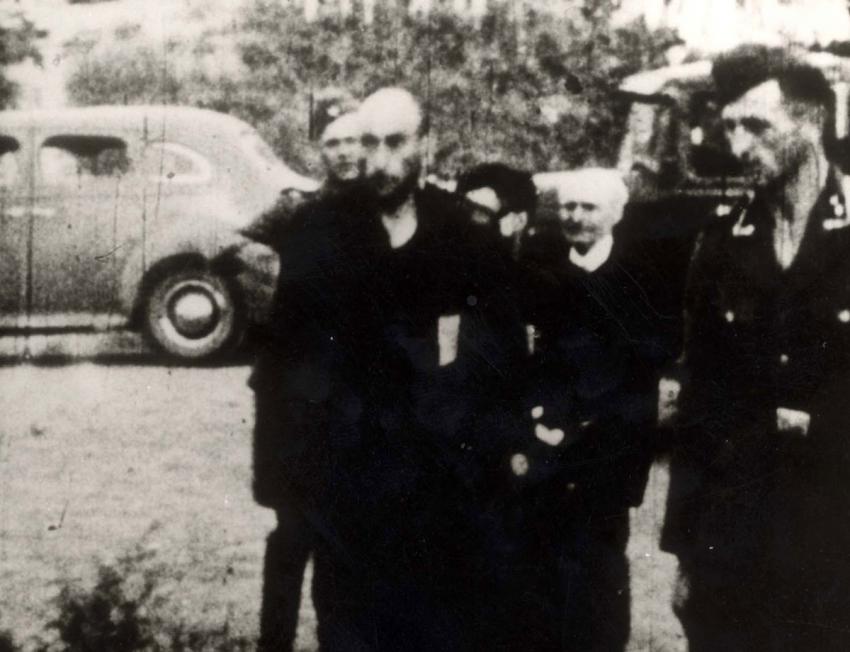
Yad Vashem Photo Archives 4577/327

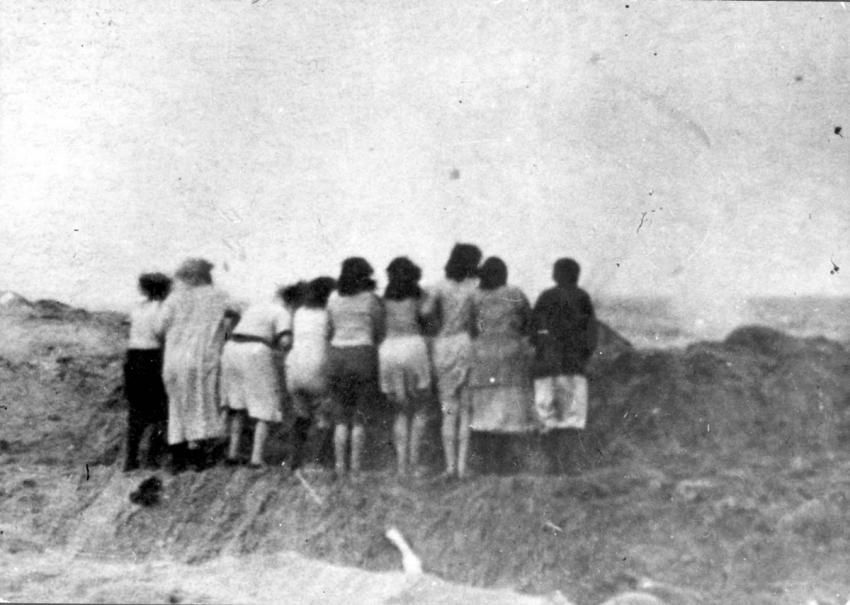
Yad Vashem Photo Archives 85DO3

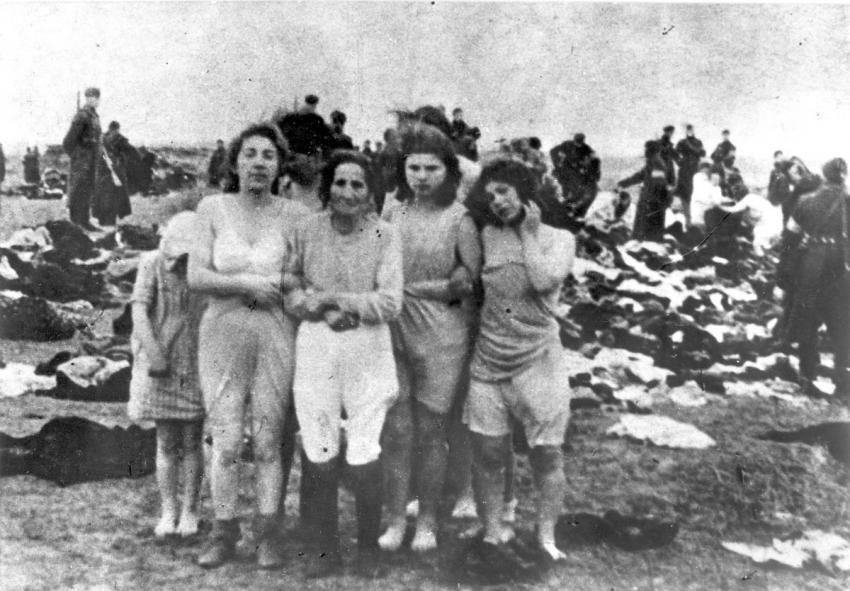
Second from right: Naomi Yankelowitz. Third from right: Miriam Parvie. Fourth from right: Fruma Parvie. According to a different account, this is the Epstein family: Left, Sarah (Sureleh, 10 years old, hiding behind her mother), Roza (43), unknown, Maya (18) and her mother, Emma (47). Roza's husband, Yaacov, was shot in July 1941. Emma's husband, Chaim, was arrested by the NKVD (Soviet secret police) in January 1941, and died in June 1942 at Saratov.
Yad Vashem Photo Archives 4613/626









